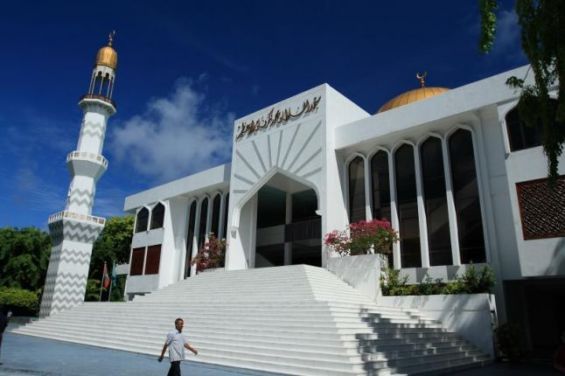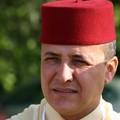The 12th century was a turning point in the history of the Maldives, the islands that left Buddhism for Islam. This conversion makes reference to a Moroccan merchant known as Abu al-Barakat Yusuf al-Barbari.
The North African trader is believed to be the man who converted the Maldivian king Dhovimi Kalaminja and the islands to Islam. This account was first brought by Moroccan traveler and scholar Ibn Battuta after his nine-month stay in the formerly Buddhist nation.
Historical accounts suggest that while working as a judge in the Maldives Ibn Battuta read Abu al-Barakat Yusuf al-Barbari’s name carved in a Friday Mosque in Malé (the Maldives’ current capital) and identified him as one of his compatriots.
al-Barbari and the sea-monster
Several other accounts emerged about the Maldivian King’s conversion to Islam and one of them have taken the form of a legend, revolving around al-Barbari. According to Live Mint, an Indian online platform, al-Barbari’s name has been associated for years with the Maldivian folklore and a demon called Rannamaari.
The same source describes al-Barbari as a Maghrebian merchant who arrived in the Maldives for trade and was housed by a Maldivian family for months. Once in the islands, the Muslim trader witnessed one of the nation’s bloodiest traditions.

In fact, every year the Maldivian king gets to choose a virgin girl to be sacrificed to a sea-monster. Dressed as a bride, the girl gets shut in a temple near the sea waiting for her absolute death.
«It so happened that the family whose hospitality al-Barbari had enjoyed during his stay in Malé had a young girl, and she was chosen by the king for sacrifice», wrote the same source.
Angered by the tradition, al-Barbari decided to help the young girl and pay back his hosts by taking her place the night of the sacrifice. He dressed like a bride and was taken mistakenly to the temple. Once there, he started reciting verses from the Quran. According to the legend, the demon «emerged from the sea, it cried out in pain upon hearing the Quran being recited and returned to the sea».
Converting the king to Islam
When people knew that al-Barbari scared the demon that frightened them for years he was taken to the King, who «made the proposal that if he could exorcise the monster forever, the king and his subjects would convert to Islam».
Here the legend has two different versions. The first suggests that indeed al-Barbari killed the demon and the King shouldered his promises converting to Islam while the second indicates that while in the temple al-Barbari realized that the demon is the King himself and pressured him into converting to Islam.
Away from legends, the 128th and 127th issues of the monthly magazine «Daaouat Al Haq» published by the Ministry of Habous and Islamic Affairs, reports that Abu al-Barakat Yusuf al-Barbari was indeed a real person who entered the Maldives with a group of Arab merchants in 1153.
According to the monthly journal, al-Barbari noticed that Buddhism was the principle religion in the Maldives and asked to meet the king to convince him about converting to Islam. The ruler refused to meet the Moroccan merchant at first but was later persuaded, giving up on his religion and embracing Islam.





 chargement...
chargement...













